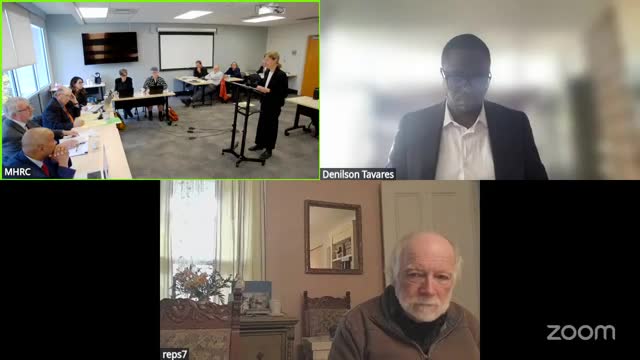Commission finds reasonable grounds in age-discrimination complaint from long-serving parish employee
Get AI-powered insights, summaries, and transcripts
Subscribe
Summary
The Maine Human Rights Commission found reasonable grounds to believe a 72-year-old longtime parish employee experienced age-based harassment, retaliation and interference after reporting misconduct; the commission ordered conciliations to proceed.
A former administrative assistant who worked nearly 20 years at St. Joseph Parish in Ellsworth alleged the Diocese of Portland subjected her to age-based harassment and then retaliated against her after she reported the conduct. The commission found reasonable grounds to believe discrimination occurred.
Complainant Reverend Monica Giordano (referred to in filings as Ms. Giordano) told the commission through counsel that beginning in early 2023 her parish priest repeatedly made age-related remarks, mocked her by holding up packages of adult diapers and once "threw papers deliberately at her face at close range, striking her eyes and cheeks," counsel said. Counsel noted the priest told Ms. Giordano, "You're getting too old for this job," a statement the complaint says the priest admitted at the issues-resolution conference. Counsel also said that after Ms. Giordano reported the conduct to HR, the diocese's response left her isolated in the office, her desk cleared, some files moved and she was later issued a written warning that said, "the accusations and rumors must stop."
Respondent counsel said witnesses at the issues-resolution conference gave different accounts and that the diocese undertook an investigation; respondent counsel argued the investigator reasonably weighed witness credibility.
Commission action: After hearing testimony from both sides and the investigator, commissioners voted to find reasonable grounds on all three recommended findings (age harassment/hostile work environment, interference/intimidation, and whistleblower/retaliation). The commission's roll-call vote to adopt reasonable-grounds findings was recorded as: Commissioner David — Yes; Commissioner Douglas — Yes; Commissioner Walker — Yes; Commissioner Sanders — Yes. The commission instructed staff to send the parties a letter with next steps and to proceed toward conciliation.
Key disputed facts: Counsel for the complainant emphasized the priest's admitted remark about age and the timing of adverse acts following complaints to HR. Respondent counsel pointed to conflicting witness testimony from staff who said certain physical acts did not occur and argued the diocese's handling complied with internal practice. Investigators and counsel debated whether the diocese promptly and adequately investigated or whether its actions (such as directing the priest to "stay away") effectively punished the complainant by isolating her.
What this means: The commission's reasonable-grounds finding opens a conciliation process; it does not itself determine liability. The commission’s decision means the complaint will advance to the next administrative step, where attempts at settlement or further proceedings will follow.
